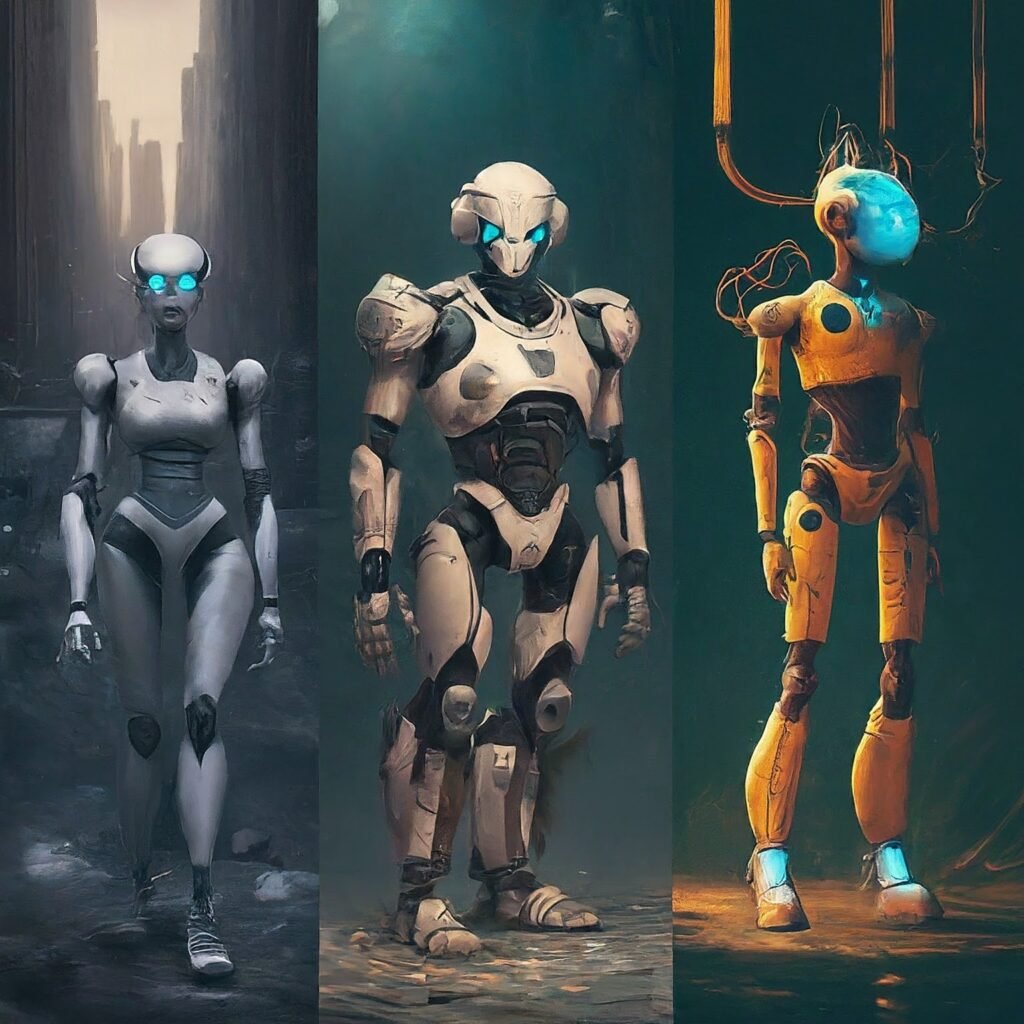Have you ever wondered how self-driving cars can navigate through busy streets without a human driver? Or how virtual assistants like Siri and Alexa can understand and respond to our voice commands? The answer lies in the remarkable field of Artificial Intelligence (AI).
What is Artificial Intelligence?
Artificial Intelligence, often abbreviated as AI, refers to the simulation of human intelligence processes by machines, particularly computer systems. In simple terms, it is the ability of machines to think, learn, and make decisions like humans do. Artificial Intelligence systems are designed to perform tasks that typically require human intelligence, such as visual perception, speech recognition, decision-making, and language translation.

The Origins of AI
The concept of AI has been around for centuries, with philosophers and scientists speculating about the possibility of creating thinking machines. However, it wasn’t until the mid-20th century that the field truly began to take shape. In 1956, a group of researchers, including John McCarthy, Marvin Minsky, and Claude Shannon, organized the Dartmouth Conference, which is widely considered the birth of AI as an academic discipline.
Since then, Artificial Intelligence has evolved rapidly, driven by advances in computer hardware, software, and algorithms. Today, AI is used in a wide range of applications, from virtual assistants and recommendation systems to medical diagnosis and scientific research.
Types of Artificial Intelligence
There are several types of Artificial Intelligence, each with its own characteristics and capabilities:
- Narrow AI (or Weak AI): This type of AI is designed to perform specific tasks within a limited domain. Examples include virtual assistants, chess-playing programs, and self-driving car systems. Narrow AI is the most common and widely used form of AI today.
- General AI (or Strong AI): This refers to AI systems with human-level intelligence, capable of reasoning, learning, and solving problems across a wide range of domains. General AI is still a theoretical concept and has not yet been achieved.
- Artificial Super Intelligence (ASI): ASI refers to AI systems that surpass human intelligence in virtually every domain. Many experts believe that the development of ASI could lead to a technological singularity, where the pace of technological change becomes so rapid that it fundamentally alters human civilization.

How Does AI Work?
AI systems rely on various techniques and approaches to mimic human intelligence. Some of the most common methods include:
- Machine Learning: Machine Learning is a subset of AI that allows systems to learn and improve from experience without being explicitly programmed. It involves feeding large amounts of data to an algorithm, which then identifies patterns and makes predictions or decisions based on that data.
- Deep Learning: Deep Learning is a type of Machine Learning that uses artificial neural networks inspired by the human brain’s structure. These neural networks can learn and make intelligent decisions on their own by analyzing vast amounts of data.
- Natural Language Processing (NLP): NLP is the ability of AI systems to understand, interpret, and generate human language. It is used in applications such as virtual assistants, language translation, and text analysis. One such example is use of ChatGPT by OpenAI.
- Computer Vision: Computer Vision is the ability of AI systems to perceive, analyze, and understand digital images and videos, much like the human visual system. It is used in applications such as facial recognition, object detection, and self-driving cars.
Applications of Artificial Intelligence
AI has numerous applications across various industries and domains, and its potential is constantly expanding. Here are some notable examples:
- Healthcare: AI is used for medical diagnosis, drug discovery, and personalized treatment plans. It can analyze vast amounts of medical data to identify patterns and make accurate predictions.
- Finance: AI is employed in fraud detection, risk management, and stock trading. It can analyze financial data and market trends to make informed investment decisions.
- Transportation: Self-driving cars and autonomous vehicles rely on AI for navigation, object detection, and decision-making.
- Retail: AI is used for personalized recommendations, inventory management, and customer service chatbots.
- Entertainment: AI is used in video game design, movie recommendations, and creating realistic animations and special effects.
- Education: AI can personalize learning experiences, provide intelligent tutoring systems, and automate administrative tasks.
Ethical Considerations and Challenges
While AI offers numerous benefits and opportunities, it also raises ethical concerns and challenges that need to be addressed:
- Privacy and Security: AI systems often rely on large amounts of personal data, raising privacy concerns. There is also a risk of AI systems being hacked or misused for malicious purposes.
- Bias and Fairness: AI algorithms can perpetuate biases present in the training data, leading to unfair or discriminatory decisions.
- Transparency and Accountability: Many AI systems, especially those using deep learning, operate as “black boxes,” making it difficult to understand how they arrive at their decisions.
- Job Displacement: As AI automates more tasks, there are concerns about potential job losses and the need for workforce retraining.
- Ethical Decision-Making: As AI systems become more advanced, there are questions about how to ensure they make ethical decisions and align with human values.
The Future of Artificial Intelligence
AI is rapidly evolving, and its potential impact on society is both exciting and uncertain. Many experts believe that we are on the cusp of an AI revolution that will transform various aspects of our lives, from healthcare and education to transportation and entertainment.
As AI systems become more advanced and capable, it is crucial to address the ethical and societal implications. Collaboration between researchers, policymakers, and the public is essential to ensure that AI is developed and deployed in a responsible and beneficial manner.
Despite the challenges, the future of AI holds immense promise. It has the potential to solve complex problems, enhance human capabilities, and drive innovation across numerous domains. As AI continues to evolve, it will undoubtedly shape the world in ways we can scarcely imagine today.

In conclusion, Artificial Intelligence is a fascinating and rapidly evolving field that promises to revolutionize the way we live, work, and interact with technology. By understanding its principles, types, and applications, as well as addressing its ethical considerations, we can harness the power of AI to create a better future for humanity.
If you want to know more on available AI Tools, please click here.















